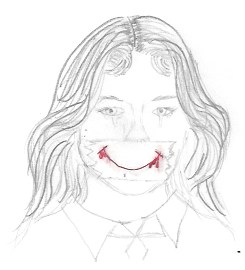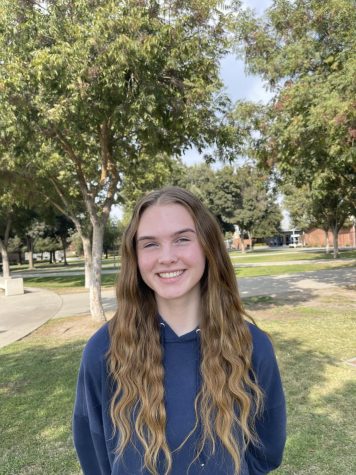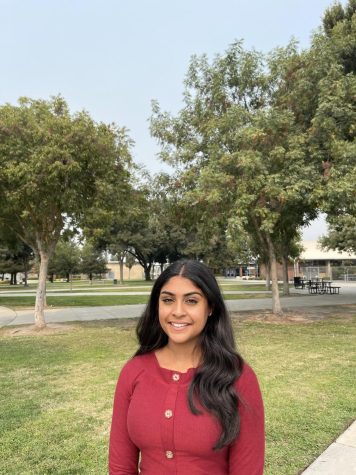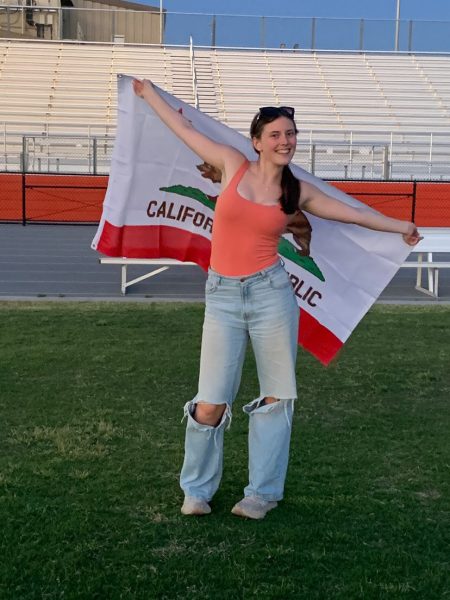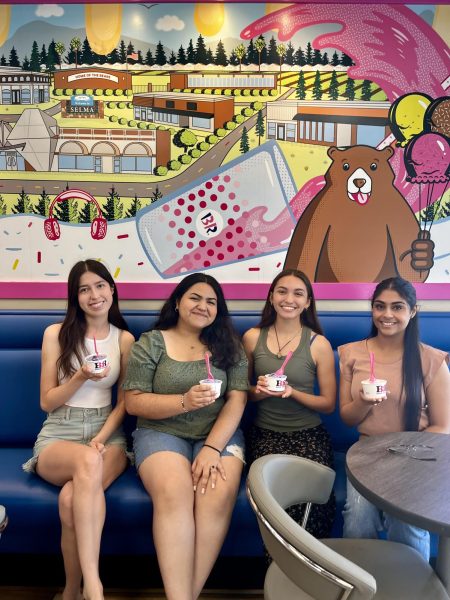Sometimes I Cry: The Struggle with Unrealistic Expectations of Happiness
April 8, 2022
The people around me have glorified the idea of happiness. Society lusts for the feeling of true “happiness.” However, what is happiness without the contrary? If there weren’t a feeling to contradict exuberance, humans would never know what that feeling derives.
We continuously try to fill the voids in our lives that we consider imperfect or don’t want to deal with anymore. The reason for these changes is to inflict that happy feeling more often. For example, some people will leave their job for another or change their lifestyle to a more healthy version. Yet when they sit back and analyze these decisions, they realize they aren’t “happier people.”
I believe that happy people do not exist. Being happy is only a feeling and cannot be a consistent emotion. I believe in change, not stagnation.
We see these “happy” people going on fancy vacations and wearing designer clothes online. When they caption their posts “my happy place” or “loving my life,” we can’t help but desire it. In reality, these influencers have problems, whether family, friends, financially, or personally. And those problems will never subside because that’s precisely how life is. Anger, sadness, anxiety, depression, mental illness, it’s all human nature.
My parents will comment, “Why do you look so sad?” Or, “You need to be happier.” My personal favorite is “smile more.” There is this overlooked idea of pretending. “Fake it till you make it,” they say. Instead of promoting living as a robotic society, we need to encourage authenticity.
Instead of hoping only to feel consistent happiness, I say to embrace when you’re feeling sad. Be angry. Be opinionated.
Sometimes I cry because I want to. Normalize not knowing what you’re feeling. Don’t be afraid to think deeply and have meaningful emotions. Normalize not knowing what you want in life. Instead of reaching for happiness, strive for meaning. Reach for purpose. Once I realized I didn’t need to be happy all the time, I felt less pressure and more self-aware. However, it became harder to express my emotions because happiness was not my standard.
I want to live a life full of purpose and do what I genuinely love, not what someone else thinks is best for me. That doesn’t mean becoming rich or having a nice car, that means making an impact on the world in whatever way I can. I want to showcase authenticity and give people insight into how beautiful emotions can be.
Despite my intentions and life aspirations, I continue to succumb to expectations and those unachievable standards. No matter how hard I try, I continue to struggle. I continue to wrestle with the voices in the back of my head: “Don’t show that you’re sad; they will judge you.” And again with the “smile more” comment. If I want to smile, I want it to be genuine, and my feelings to match it.
I want to be allowed to feel. Don’t tell me not to be sad because, just like happiness, sadness is not a constant emotion. Therefore, allow me to express it just as you would allow me to express my joy.
There’s only one word for happiness. There’s no replacement or substitute. One universal life goal. That’s too much pressure. I would cry instead.
